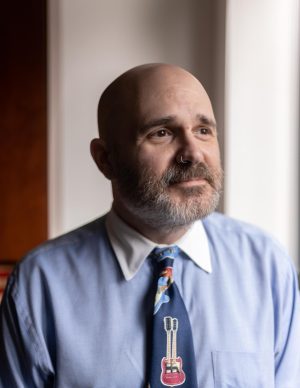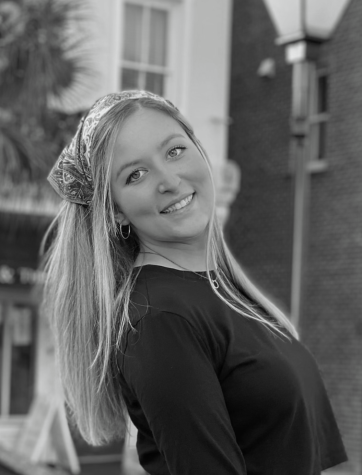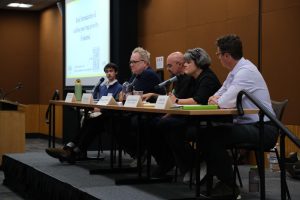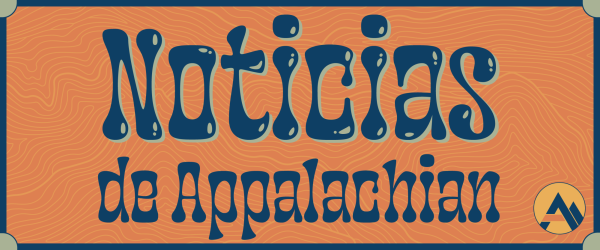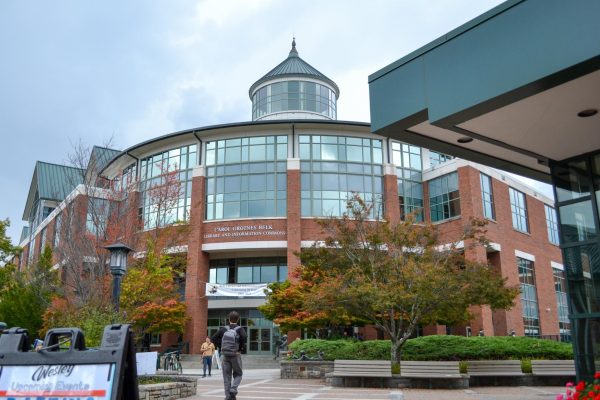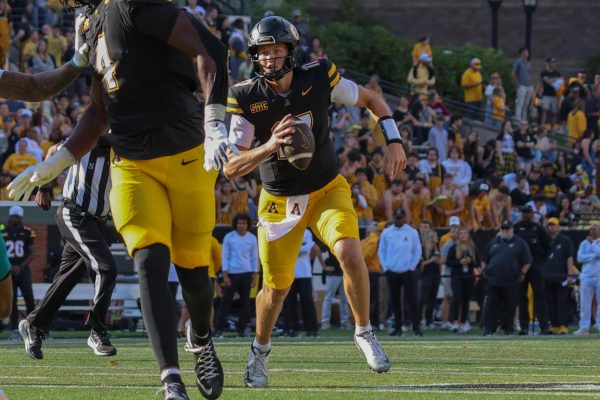App State chemistry professor publishes new take on carbon energy solution
February 3, 2022
A chemistry professor at App State developed a new green energy angle that has taken his work to Nature Chemistry, a highly rated chemistry journal.
During Christian Wallen’s postdoctoral research at University of Wisconsin-Madison, Wallen spent over three years exploring the possibility of combining ammonia and oxygen without additional energy, making nitrogen and water, which produces energy.
While at UW-Madison, Wallen worked closely with his postdoctoral research advisor, John Berry and graduate student Michael Trenerry. They were not the first to come up with the idea of using this tactic to create energy but the first to discover it was possible.
“When it came time for him to look for a postdoc advisor, he asked me if I would be willing to take him on as a postdoc,” Berry said. “I didn’t really have to think about it because he is really fantastic, and I knew he was really fantastic.”
Part of the paper discusses the concept of using nitrogen-based fuels in what is called the “nitrogen economy,” Wallen said. The U.S. currently has a carbon economy, meaning that most energy is centered around carbon-based fuel.
The other part of the article is not solving exactly how the nitrogen energy will be made and used but taking a big step toward making nitrogen-based energy and discovering how it is possible, Wallen said.
After his research was finished, he applied and received the position as an assistant chemistry professor at App State. Wallen teaches an inorganic chemistry lab, introduction to chemistry II and it’s accompanying lab class.
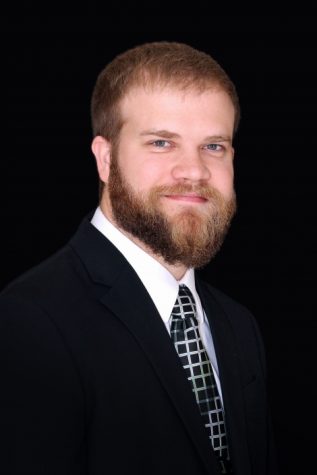
“What I want my students to see is that even though we don’t have million-dollar instruments, it doesn’t matter. Because when we need to do something we can’t do, there’s other scientists in the field that also care about the same problem we do, and there is a community we can use,” Wallen said.
Wallen, along with his wife, Rebecca Wallen, who also teaches at the university in the App State’s English Language Studies institute, moved to the area in summer of 2020.
“Just being there with him to encourage him during the discouraging times, because science is full of discouraging times, even getting to celebrate with him too is neat,” Rebecca Wallen said. “I would just say that our marriage and our relationship is a strong foundation for working together and supporting each other.”
After publishing the article in Nature Chemistry, Christian Wallen and Berry said people were “crawling out of the woodwork” to talk with them about the research. They have obtained a patent for their idea, putting legal rights to their research under each person’s name.
“No other paper I have published has there been this kind of response,” Berry said. “The interest in this is really quite strong. I think it’s just the right research topic at the right time, I think everyone is really concerned about what do we do about dying down fossil fuels.”
Christian Wallen and his team are hoping to have a fuel cell to test by the end of the spring semester. In order to put their research to work on a global scale, they will need a commercial partner, Berry said.
“At the end of the day, what we really need is not just more money and more chemicals and more grants,” Christian Wallen said. “What we really need is more creative thinking, and that is something we can supply regardless of what institution we are at.”


